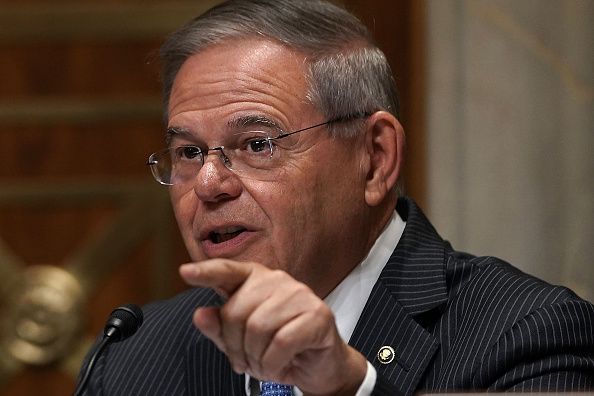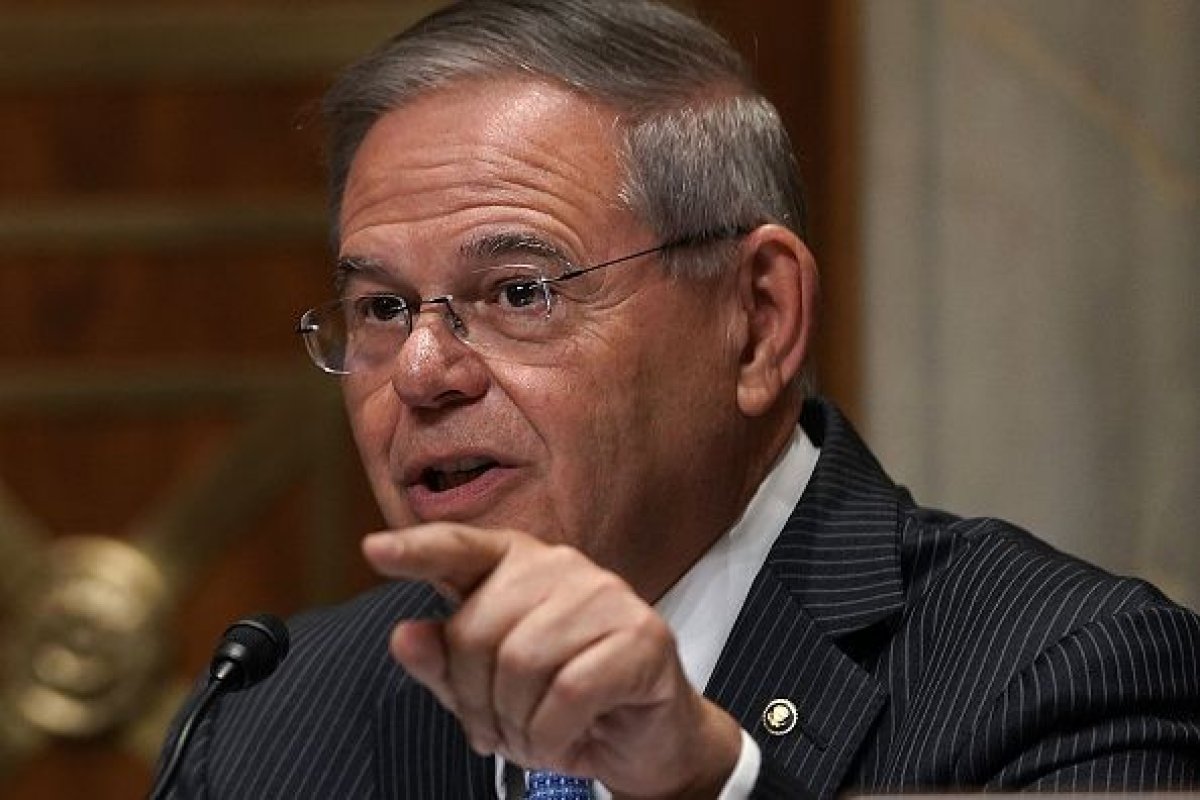
Legislators on the Senate Foreign Relations Committee grilled members of the Trump administration Tuesday to uncover what the U.S. leader discussed with Russian President Vladimir Putin during the summit in Helsinki last July, particularly on nuclear arms control.
"Despite a number of inquiries to the secretary and others, more than two months after President Trump's Helsinki meetings with President Putin, we remain largely in the dark as [to] what the two leaders discussed or agreed to during their closed session," Democratic Senator Bob Menendez of New Jersey, ranking member on the Senate Foreign Relations Committee, said during opening statements.
"We do know that the Russian ambassador to the United States, Anatoly Antanov, told reporters that 'important verbal agreements were reached at the Helsinki summit on arms control issues, including preservation of the NewStart and INF Treaty [the Intermediate-Range Nuclear Forces Treaty].' We find ourselves in an incredible situation. The American people, the elected officials in this body, and members of the president's own administration hear more from Russian officials about alleged agreements the president is making about critical national security issues," Menendez continued.

When President Donald Trump met with Putin in Helsinki, only their translators were present. The move has caused speculation about what the two leaders might have discussed and agreed upon, including on the subject of arms control.
The News Strategic Arms Reduction Treaty (New START) was signed with Russia under the administration of former President Barack Obama in 2010. It replaced a previous arms control treaty between the two countries that was signed in 1991 and expired in 2009. The treaty puts specific limits on nuclear warheads, missiles, bombers and launchers, and sets out guidelines for counting and monitoring these weapons. The treaty is set to expire in 2021, and many analysts have been asking whether it will be extended.
"Existing nuclear arms control agreements are at risk, and both sides are pursuing costly programs to replace and upgrade their Cold War–era strategic nuclear arsenals, each of which exceeds reasonable deterrence requirements," a group of high-ranking former officials and nuclear experts from the U.S. and Russia wrote in an open letter to Trump and Putin in April. "A compliance dispute threatens the 1987 Intermediate-Range Nuclear Forces (INF) Treaty, and the 2010 New Strategic Arms Reduction Treaty (START) will expire in 2021 unless extended."
During Tuesday's hearing, Under Secretary of State for Arms Control Andrea Thompson noted that both the U.S. and Russia had met their New START limitations by February 2018, but that "no decision has been made at this time" about whether to extend the treaty.
The Trump administration planned to use arms control treaties as leverage to pressure Russia, Thompson noted, adding that Moscow's behavior casts doubt on whether the country wants to preserve the INF treaty, which obliges the U.S. and Russia to get rid of all nuclear and conventional ground-launched ballistic and cruise missiles with a range of between roughly 310 and 3,400 miles.
"It's not in our interest to withdraw from the INF treaty, I don't think that helps solve the Russia problem," Senator Jeanne Shaheen, a Democrat from New Hampshire, told the Trump officials Tuesday. "What other options are being considered to try to push the Russians to again comply with the INF treaty?"
Thompson responded that the U.S. is using economic, diplomatic and military means to pressure Russia, but that she didn't want to get into specifics because they were "still in the developmental stages."
Russia has also failed to follow international norms related to chemical weapons, in particular when agents attempted to poison a former Russian spy in England using a banned nerve agent called Novichok, she added.
"We recently imposed the first round of sanctions on Russia required by the chemical and biological weapons control and warfare elimination act," Thompson told the senators. "We have been clear with Russia that we will continue to execute our mandate under this law."
Uncommon Knowledge
Newsweek is committed to challenging conventional wisdom and finding connections in the search for common ground.
Newsweek is committed to challenging conventional wisdom and finding connections in the search for common ground.
About the writer
Cristina Maza is an award-winning journalist who has reported from countries such as Cambodia, Kyrgyzstan, India, Lithuania, Serbia, and Turkey. ... Read more
To read how Newsweek uses AI as a newsroom tool, Click here.








